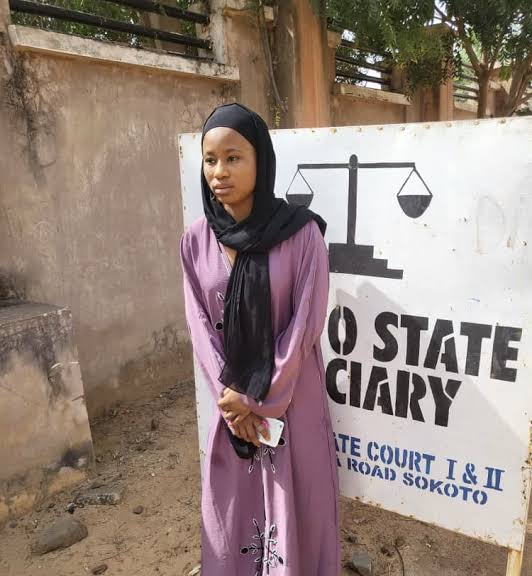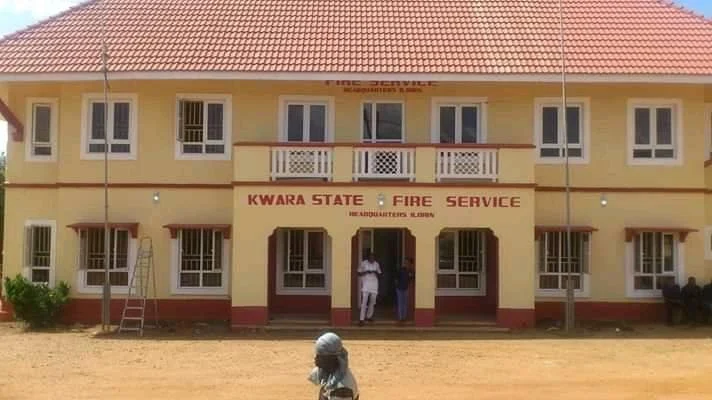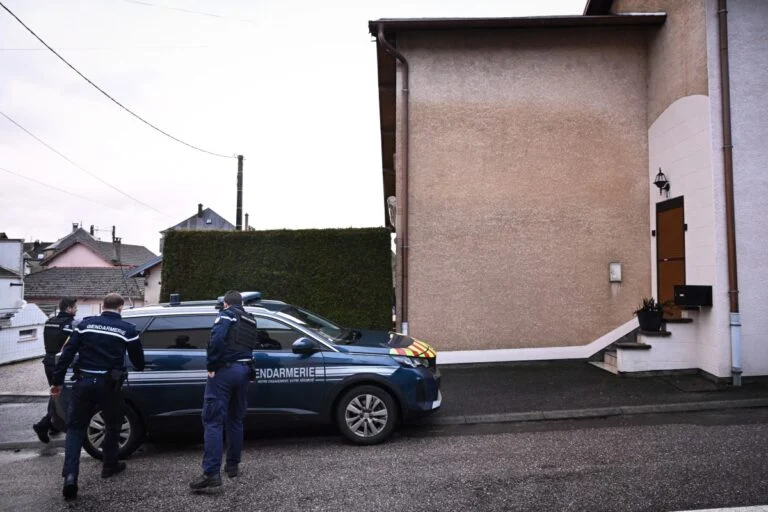Outcry as Sokoto Teen Sentenced to Jail or Caning for Speaking Out on Poverty, Rape, Banditry

A wave of condemnation has trailed the sentencing of 18-year-old Hamdiyya Sidi Shariff in Sokoto State, after a magistrate court ordered that she receive 12 strokes of the cane, or serve two years in prison, over social-media posts highlighting poverty, sexual violence, displacement and rising banditry in her community.
Shariff, a young activist, was arrested on 13 November 2024 following a series of viral videos in which she criticised worsening insecurity in parts of Sokoto, particularly the plight of women and girls facing sexual exploitation in areas overrun by bandits.
Her posts also touched on hunger, mass displacement, and the failure of authorities to protect rural communities.
According to court filings, she was charged with “inciting disturbance” and using “insulting or abusive language,” offences that fall under a combination of Sharia and magistrate court statutes in the state.
The court ruled that she must either pay a ₦50,000 fine, serve a two-year jail term, or receive 12 lashes.
Rights advocates say the case is riddled with due-process violations. Human-rights groups report that Shariff was abducted by unidentified armed men before her arraignment, beaten and later thrown from a moving tricycle, leaving her with serious injuries.
Her statement to police was allegedly taken without access to legal representation, a breach that critics say casts doubt on the fairness of the proceedings.
The sentence has been widely condemned by civil-society organisations and international rights groups, including Amnesty International, which described the punishment as an attempt to silence legitimate criticism of insecurity.
Activists argue that Shariff’s posts merely drew attention to real dangers facing women and rural families across northern Nigeria, where banditry and sexual violence have become increasingly common.
There are also disputes around the legal clarity of the ruling. A fact-check by the Foundation for Investigative Journalism (FIJ) noted that aspects of the reported judgment may have been misinterpreted, though it confirmed key details of her arrest, charges, and vulnerability during detention.
The case has renewed debate over free expression in Nigeria, particularly in regions operating mixed legal systems. Advocacy groups are calling for the sentence to be overturned, while urging authorities to focus on addressing the insecurity Shariff spoke up about, rather than punishing those who draw attention to it.
More reactions are expected as legal and human-rights bodies push for her release and the review of the charges against her.









